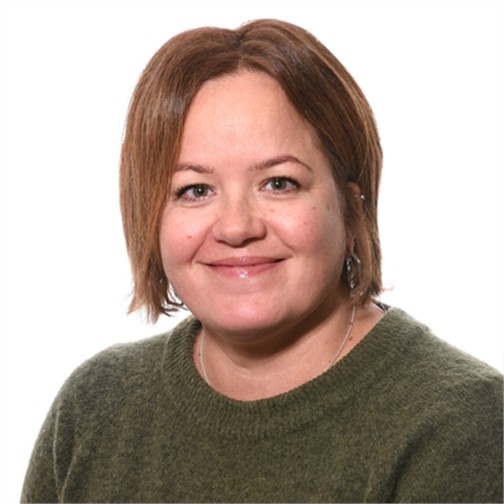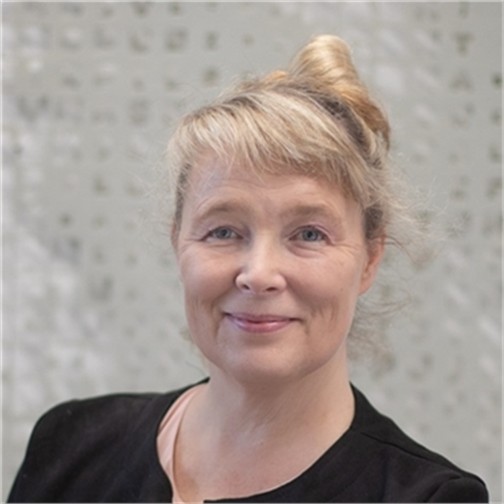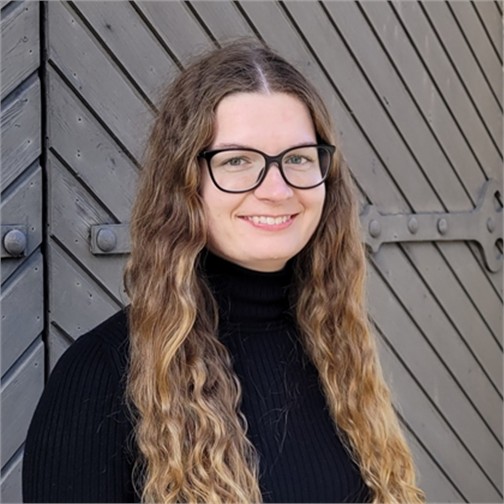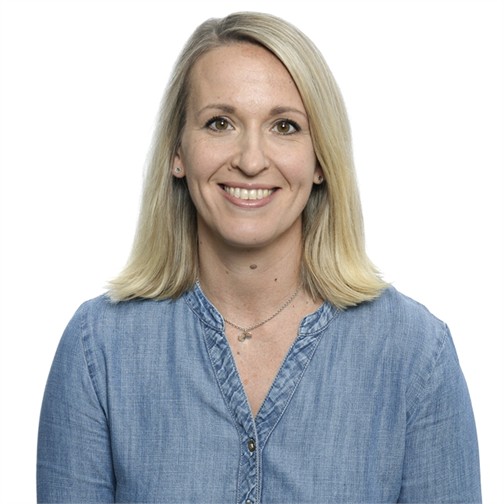Higher education is increasingly focused on high-quality learning and student well-being. But how do diverse institutions, like those in the RUN-EU network, ensure a shared understanding of high-quality pedagogy and learning? This article explores the initial steps of using the LearnWell questionnaire to understand the learning experiences and well-being of RUN-EU students, providing an important foundation for pedagogical development efforts across Europe.
Introduction
In recent years, there has been a growing interest within higher education pedagogy on the importance of high-quality learning and student well-being. This concern extends to the Regional University Network (RUN) European University (RUN-EU), established in 2020. Today the RUN-EU network includes eight European higher education institutions from Austria, Finland, Ireland, the Netherlands, Portugal, Spain and Belgium, creating a multinational and interregional alliance committed to strategic regional development that seeks to enhance institutional cooperation across Europe and to strengthen the European inter-university network. The RUN-EU network aims to equip higher education students and stakeholders with advanced skills for addressing and solving current challenges and to foster active citizenship across Europe. (RUN-EU, n.d.) The university network prides itself on promoting sustainability, multiculturalism, and inclusiveness in all its endeavours, and it promises to offer students exceptional learning experiences, emerging from high-quality pedagogy.
Given the multicultural and multidisciplinary nature of the RUN-EU community, not all members necessarily share the same understanding of what constitutes high-quality pedagogy. Because of this, a common pedagogical framework for the network was outlined in the Pedagogical Guide for RUN-EU Teachers (see Regional University Network, European University, 2024). This framework aligns with the OECD Learning Compass (OECD, 2019), which envisions an aspirational future for education in Europe. The framework defines both individual and collective well-being as essential objectives and emphasizes the students’ active agency in taking ownership of their learning, not only during their studies but throughout their lives.
During the first operational phase of the RUN-EU network (2020–2023) and in connection with the development of the above-mentioned pedagogical guide, one of the network’s key objectives was to pilot the research-based LearnWell learning experience questionnaire (see Rönkkönen et al., 2024; HAMK, n.d.). The aim was to embed the questionnaire—developed at Häme University of Applied Sciences—as an integral part of the pedagogical development activities within the RUN-EU network. As part of developing the pedagogical guide and high-quality pedagogy within the network, in 2023 a survey study was conducted measuring RUN-EU students’ study well-being and approaches to learning. This survey is also used as a methodological example in this article. The aim of the questionnaire was to produce information on the learning processes and well-being of RUN-EU students, identify potential challenges, and to discover any specific developmental needs—in order to gain an empirical basis for developing higher education pedagogy and high-quality learning within the RUN-EU network. Indeed, there was a gap in understanding how RUN-EU students experience their studies in relation to their active role in learning and their overall study well-being, also suggesting how these aspects interconnect. The questionnaire data was gathered from all seven RUN-EU higher education institutions in Portugal, Ireland, Hungary, Austria, Finland, and the Netherlands, that were part of the RUN-EU network at the time of the measurement. Altogether, 550 students from seven RUN-EU institutions participated in the data collection.
In this article, we take a look back on the first steps of using the LearnWell questionnaire as a tool for pedagogical development efforts, exploring its key concepts and applicability. Since the first operational phase of the RUN-EU network, pedagogical development efforts have taken on more systematic forms, which we will return to at the end of the article.
The LearnWell questionnaire
The “LearnWell” in the title of the questionnaire comes from its full name, Well-being of the Learning Community, which sets the well-being of students as one of its main focuses. The LearnWell questionnaire has been adapted from the HowULearn questionnaire that was first developed at the University of Helsinki (see Parpala & Lindblom-Ylänne, 2012). Since then, the questionnaire has been refined at the Häme University of Applied Sciences to include the context and nuances of universities of applied sciences (HAMK, 2023), which are different from its original focus on research-intensive universities and their learning environments. As a result, the LearnWell questionnaire provides higher education institutions with reliable, in-depth and research-based insights into students’ study processes, experiences, and well-being, supporting the development of teaching and learning environments. (HAMK, 2023) Previous research shows that when measuring the quality of teaching, it is essential to do so through various focal points (such as the students’ learning processes, experiences of the teaching-learning environment, and well-being), in order to gain a holistic understanding of quality of teaching (e.g., Parpala & Lindblom-Ylänne, 2012).
The LearnWell questionnaire includes four broader themes: students’ learning processes, learning environment, experiences in competency development, and study-related well-being (see Kosenkranius et al., 2024). In 2023, during the first implementation phase to integrate the LearnWell questionnaire into the pedagogical development within the RUN-EU, the questionnaire consisted of 105 items on a 5-point Likert scale (1 = Totally disagree; 5 = Totally agree). Since then, the questionnaire has been developed further. In its current form, the above-mentioned broad themes have been refined so that, for example, study-related well-being includes measurement through the dimensions of psychological flexibility, self-efficacy, self-compassion, and it measures well-being deficits through study-related burnout and self-criticism. The category of experiences of the learning environment, on the other hand, is approached through peer support, collaborative working, feedback, alignment of teaching, and interest and relevance. Finally, learning processes—that is, approaches to learning—are divided into three main areas: deep approach to learning, unreflective (surface) approach to learning, and organized studying. (HAMK, n.d.)
A condensed version of the LearnWell questionnaire was piloted and used within the context of the RUN-EU pedagogical development efforts. At the time of the measurement in 2023, it included the categories of approaches to learning, self-efficacy, and self-compassion (altogether 23 items). In the following, we will briefly discuss the theoretical underpinnings of these concepts and their current research evidence in the field of higher education pedagogy.
Conceptual foundations of the LearnWell questionnaire: Approaches to learning and student well-being
Approaches to learning refer to the aims that the students set for their learning and the strategies they employ to achieve the learning outcomes (Entwistle, 1998; Lindblom-Ylänne et al., 2019). Current research recognizes three different approaches to this, and they are included in the LearnWell questionnaire. Firstly, deep approach to learning refers to aiming to understand the learning material and subject matter through critical thinking (Asikainen & Gijbels, 2017) and to using reflection in learning tasks (Biggs, 2003). Secondly, surface approach to learning, or rather, unreflective learning (see Kosenkranius et al., 2024; Hailikari et al., 2022), can be understood as students aiming to memorize new information, which is often based on extrinsic motives, such as receiving good grades (Vanthournout et al., 2014). Thirdly, organized studying focuses on how organized and efficient students are in their effort and time management (Entwistle & McCune, 2004).
The LearnWell questionnaire approaches student well-being through self-efficacy, self-compassion, and its sub-dimension, self-criticism. In this distinction, self-efficacy refers to the students’ beliefs about their academic success and skill mastery and the extent to which they understand complex subject matters (Pintrich et al., 1991), while self-compassion is defined as acknowledging and understanding that one is worthy of compassion even after feeling inadequate or facing a failure (Neff, 2003). Self-criticism, on the other hand, denotes a tendency to adopt a negative perspective when assessing one’s own actions (Naragon-Gainey & Watson, 2012). Finally, self-criticism can be understood as the experience of self-judgement, regarding one’s failures as an isolating factor and over-identifying with these failures (López et al., 2015). Especially self-compassion, with its dual aspects of self-compassion and self-criticism, is still a rather understudied area in the field of higher education pedagogy (Civil et al., 2025).
Lessons learned and next steps
In higher education institutions across Europe, there is a constant and growing interest in developing innovative pedagogical practices that promote high-quality learning. The central aim of RUN-EU is to develop a pedagogical culture that promotes student-centredness as a core element. First and foremost, this implementation of the LearnWell questionnaire and related data collection and analysis (for more detailed illustration, see HAMK, 2023) provided important insights and served as a starting point that also builds an empirical foundation for pedagogical development efforts within the RUN-EU network. This first implementation included developing the pedagogical guide and embedding the LearnWell questionnaire as a tool for quality assurance to promote high-quality teaching in Europe. Retrospectively, we can see that this first implementation of data collection across six European countries and seven higher education institutions highlighted the numerous moving parts and their potential challenges. For instance, each RUN-EU institution had its own research permit application procedures which could cause delays. Additionally, the data collection began in late spring and extended into the early autumn, partly coinciding with the summer break, which may have influenced the dataset size (550 students from seven higher education institutions). These were some of the challenges collectively faced during the implementation process of the LearnWell questionnaire, and these will be taken into account in future development.
Currently, the LearnWell questionnaire is being systematically collected from every RUN-EU learning opportunity, as a part of the larger Learner Experience questionnaire (see HAMK, 2025). This larger questionnaire includes the LearnWell questionnaire and added items on specific programme content, teaching and teaching resources, a questionnaire about mobility, and questions related to impact. Typically, the questionnaire data is collected at the final session of the learning opportunity, and even though responding is voluntary, the response rates have been very high. Today, the LearnWell questionnaire is used as a central instrument for enhancing the quality of teaching and learning in RUN-EU institutions. The results are analysed and reported regularly to identify common strengths and pedagogical development needs across RUN-EU learning opportunities, such as Short Advanced Programmes (SAPs) and Joint Programmes (JPs). These results will provide important information about the quality of learning and student well-being. In addition to this, the Future and Advanced Pedagogy Skills Academy (FAPSA) has a key role in interpreting the LearnWell data and translating the findings so that they serve pedagogical development. For example, teachers and students can be offered workshops or webinars on topics that arise from the results.
In addition, LearnWell is used to promote a more supportive and dialogue-oriented feedback culture within the RUN-EU. To facilitate this, the results of the LearnWell questionnaire are discussed between the teachers and students in interactive feedback sessions after the learning opportunities, to help with facilitating the construction of a supportive and dialogical feedback culture. Furthermore, centres focusing on supporting the quality of teaching and learning in RUN-EU Institutions (called as Institutional FAPSAs), will support the facilitation of these feedback sessions.
Finally, because the results of the LearnWell questionnaire are a research-based instrument, they can be discussed in the light of research on student learning and well-being in higher education. Educational scientists and experts working in Institutional FAPSAs have an important role in interpreting the results for the use of educational development in the RUN-EU context. As the LearnWell questionnaire data is now being systematically collected, it also provides opportunities for research on these topics. Currently, the research permits from each institution are collected to allow for research collaboration. As a result, the pedagogical development efforts within the RUN-EU network continue to foster a shared understanding and commitment to high-quality learning and teaching across Europe.
In this article, the first authorship is shared between Telle Hailikari and Taina Civil-Hirvonen, and
they have contributed to the publication equally.
References
- Asikainen, H., & Gijbels, D. (2017). Do students develop towards more deep approaches to learning during studies? A systematic review on the development of students’ deep and surface approaches to learning in higher education. Educational Psychology Review, 29(2), 205–234. https://doi.org/10.1007/s10648-017-9406-6
- Biggs, J. B. (2003). Teaching for quality learning at university. Open University Press.
- Civil, T., Kosenkranius, M., Hailikari, T., Virtanen, V., & Postareff, L. (2025). Approaches to teaching and wellbeing among European higher education teachers. Ammattikasvatuksen aikakauskirja, 27(1), 72–91. https://doi.org/10.54329/akakk.157577
- Entwistle, N. J. (1998). Approaches to learning and forms of understanding. In B. Dart & G. Boulton-Lewis (Eds.), Teaching and Learning in Higher Education: From theory to practice (pp. 72–101). Australian Council for Educational Research.
- Entwistle, N., & McCune, V. (2004). The conceptual bases of study strategy inventories. Educational Psychology Review, 16(4), 325–345. https://doi.org/10.1007/s10648-004-0003-0
- Hailikari, T., Virtanen, V., Vesalainen, M., & Postareff, L. (2022). Student perspectives on how different elements of constructive alignment support active learning. Active Learning in Higher Education, 23(3), 217–231. https://doi.org/10.1177/1469787421989160
- HAMK. (n.d.). LearnWell.The LearnWell study experience questionnaire. Retrieved February 11, 2025 from https://www.hamk.fi/en/projects/learnwell/
- HAMK. (2023). D3.4 framework for innovative pedagogical approaches and good practices report (3rd report). https://run-eu.eu/wp-content/uploads/sites/30/2024/02/D3.4-Framework-for-Innovative-Pedagogical-Approaches-Good-Practices-Report-3rd.pdf
- HAMK. (2025). Developing RUN-EU pedagogy together with students and teachers. https://www.hamk.fi/en/developing-run-eu-pedagogy-together-with-students-and-teachers/
- Kosenkranius, M., Rönkkönen, S. & Hailikari, T. (2024). Positive trends in HAMK first-year students’ wellbeing and learning experiences. HAMK Unlimited Journal, 21.5.2024. https://urn.fi/URN:NBN:fi-fe2024050827795
- Lindblom-Ylänne, S., Parpala, A., & Postareff, L. (2019). What constitutes the surface approach to learning in the light of new empirical evidence? Studies in Higher Education, 44(12), 2183–2195. https://doi.org/10.1080/03075079.2018.1482267
- López, A., Sanderman, R., Smink, A., Zhang, Y., van Sonderen, E., & Ranchor, A. (2015). A reconsideration of the Self-Compassion Scale’s total score: Self-compassion versus self-criticism. PLoS ONE, 10(7), e0132940. https://doi.org/10.1371/journal.pone.0132940
- Naragon-Gainey, K., & Watson, D. (2012). Personality, structure. In V. S. Ramachandran (Ed.), Encyclopedia of human behavior (pp. 90–95). Academic Press. https://doi.org/10.1016/B978-0-12-375000-6.00275-5
- Neff, K. D. (2003). The development and validation of a scale to measure self-compassion. Self and Identity, 2(3), 85–101. https://doi.org/10.1080/15298860309027
- OECD. (2019). OECD Future of education and skills 2030 conceptual learning framework – Learning Compass 2030. https://www.oecd.org/content/dam/oecd/en/about/projects/edu/education-2040/con-cept-notes/OECD_Learning_Compass_2030_con-cept_note.pdf
- Parpala, A., & Lindblom-Ylänne, S. (2012). Using a research instrument for developing quality at the university. Quality in Higher Education, 18(3), 313–328. https://doi.org/10.1080/13538322.2012.733493
- Pintrich, P. R., Smith, D. A. F., Duncan, T., & Mckeachie, W. J. (1991). A manual for the use of the Motivated Strategies for Learning Questionnaire (MSLQ). University of Michigan.
- RUN-EU. (n.d.). About us. https://run-eu.eu/about-us/
- Regional University Network, European University. (2024). Pedagogical guide for RUN-EU teachers. https://issuu.com/hamkuas/docs/run-eu_pedagogical_guide_booklet_1_
- Rönkkönen, S., Kosenkranius, M., Hailikari, T. & Virtanen, V. (2024). Korkeakouluoppimisen ja opiskeluhyvinvoinnin yhteydestä. HAMK Unlimited Journal, 29.1.2024. https://urn.fi/URN:NBN:fi-fe202401234031 Vanthournout, G., Donche, V., Gijbels, D., & Van Petegem, P. (2014). (Dis)similarities in research on learning approaches and learning patterns. In I. D. Gijbels, V. Donde, J. T. E. Richardson & J. D., Vermunt (Eds.), Learning patterns in higher education: dimensionsand research perspectives (pp.11–32). Routledge.
Authors

Telle Hailikari
Principal Research Scientist
I work as a Principal Research Scientist in the Unit for Research and Development of Higher Education Pedagogy (HEPeda) at HAMK. I am part of…

Taina Civil-Hirvonen
Researcher

Viivi Virtanen
Principal Research Scientist

Merly Kosenkranius
Postdoc Researcher
I work as a postdoc researcher in the LearnWell research group at HAMK Edu Research Unit. In my current research, I use quantitative research methods…

Liisa Postareff
Director, higher education pedagogy
I am the Director of the Unit for Research and Development of Higher Education Pedagogy (HEPeda) at HAMK. I lead the PedaWell research group, which…
